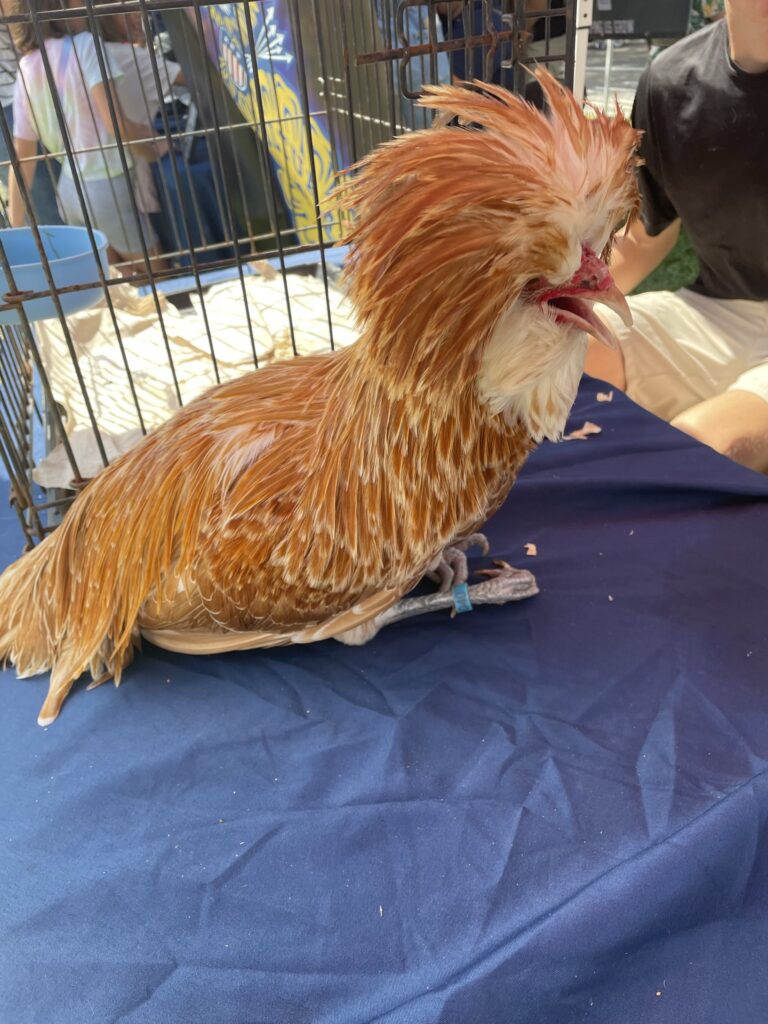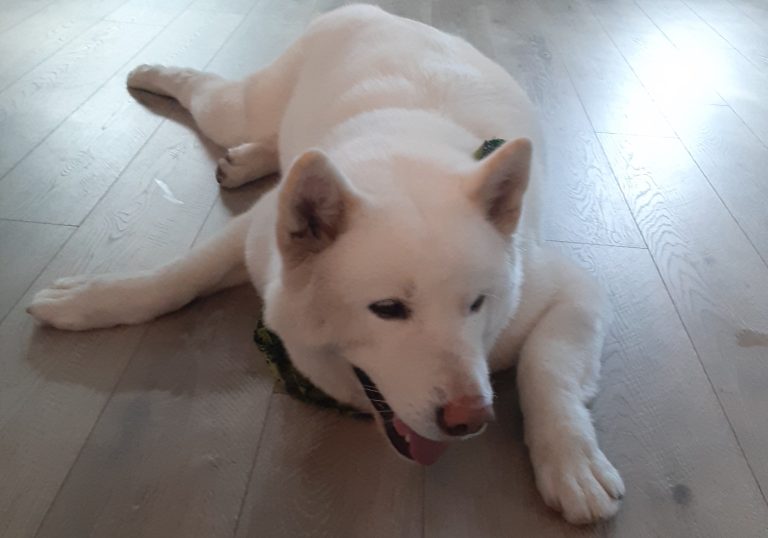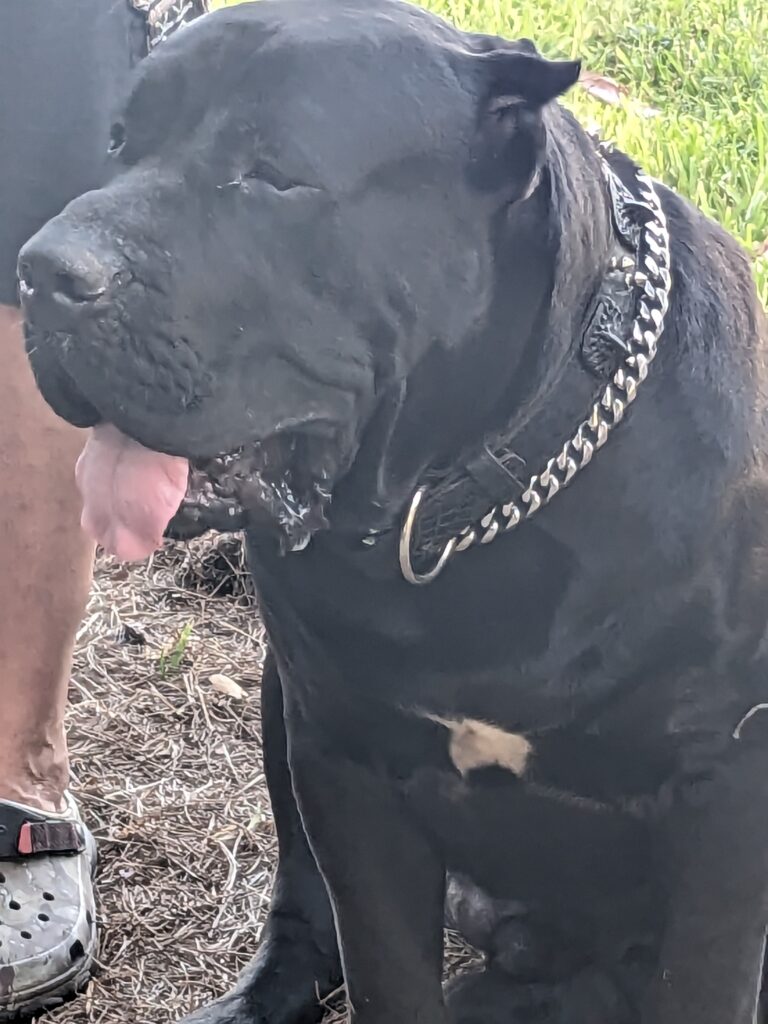What should you know if you decided to get a Capuchin monkey as a pet?
Imagine a lively and intelligent companion that could provide endless amusement and affection. Capuchin monkeys, with their playful antics and expressive faces, have long been a source of fascination for those who contemplate the idea of having a primate as a pet. The prospect of sharing your life with one of these charismatic creatures can be alluring, but it’s a decision that carries unique responsibilities and challenges. In this comprehensive guide, we’ll embark on a journey into the captivating world of caring for a Capuchin monkey as a pet. From understanding their complex social needs to creating a suitable environment and ensuring proper nutrition and health, we’ll explore every facet of primate ownership, offering insights and advice to help you make an informed decision should you choose to invite a Capuchin into your life. So, let’s delve into the enchanting realm of these endearing monkeys and uncover what it takes to be a responsible and caring Capuchin owner.
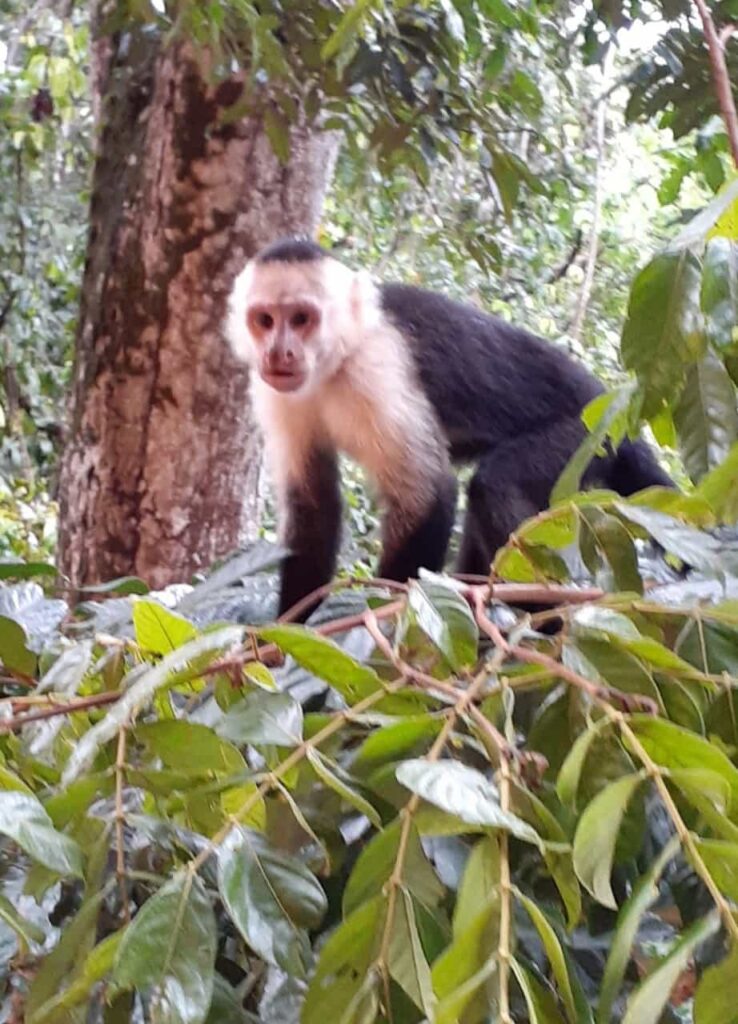
Your journey into the world of Capuchin monkey ownership should begin with a firm grasp of the legal landscape. Take proactive steps to research and understand both your local and national laws pertaining to primate ownership. Numerous regions have imposed stringent regulations, permit requirements, or outright bans on keeping primates as pets. It’s paramount that you navigate this legal terrain diligently. Familiarize yourself with the specific laws and regulations in your area, as they can vary significantly. Compliance with these laws is not just a recommendation; it’s a legal obligation. Failure to adhere to these regulations can result in legal consequences, the seizure of your monkey, or even harm to the animal’s welfare.
Therefore, before you even contemplate bringing a Capuchin monkey into your life, make it your priority to comprehend and abide by the legal framework governing primate ownership in your locality. This foundation of legal knowledge will ensure that you start your journey as a responsible Capuchin owner on the right side of the law.
When considering the prospect of Capuchin monkey ownership, one must fully appreciate the substantial commitment involved. These charming primates boast a remarkable lifespan, often reaching 15-20 years or even more. Be prepared for a relationship that spans decades; it’s a profound and enduring commitment. Understanding the long-term nature of this companionship is vital. It’s not a brief foray into pet ownership but a profound journey into the life of a remarkable creature. Embrace the idea of growing and evolving alongside your Capuchin monkey, sharing countless experiences, joys, and challenges throughout the years to come. This commitment is not to be taken lightly; it’s a lifelong bond that demands unwavering dedication and care.
Capuchin monkeys are renowned for their highly social nature. In fact, their well-being is intricately woven with the fabric of social interaction. To truly understand and care for these intelligent creatures, it’s imperative to recognize that they thrive in the company of their own kind.
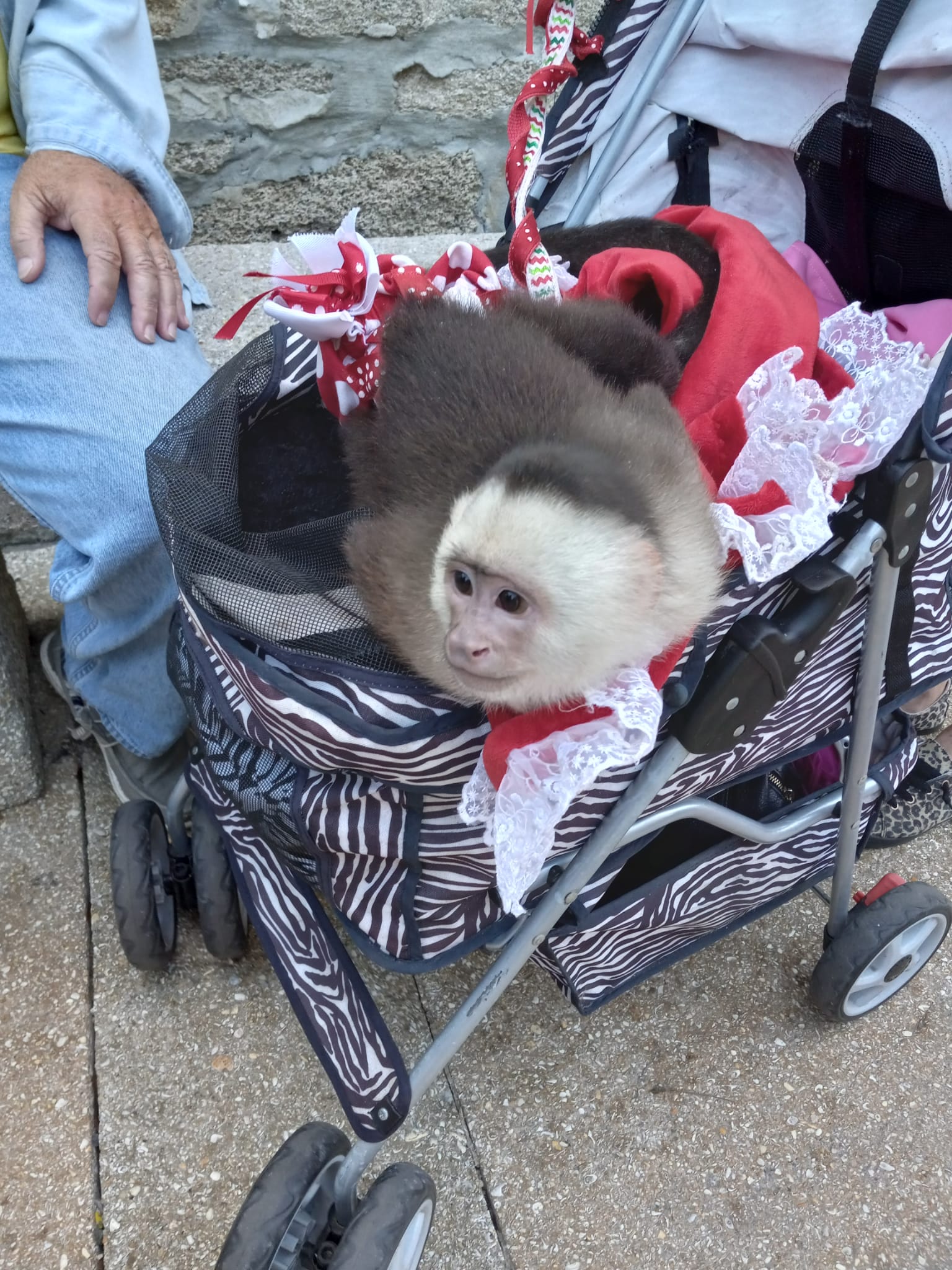
As a prospective Capuchin owner, you should brace yourself for the reality that these monkeys require a substantial amount of your time and attention to fulfill their social needs. The strength of their bonds with humans can be profound, but it does not replace their inherent need for interaction with their fellow primates.
This social requirement extends beyond casual interaction; it’s a fundamental aspect of their psychological and emotional health. Neglecting their need for companionship can lead to loneliness, stress, and behavioral issues. Therefore, if you decide to invite a Capuchin monkey into your life, commit to dedicating a significant portion of your time to ensure they enjoy meaningful social interactions and a fulfilling life. Your role as their companion will be pivotal in shaping their well-being and happiness.
Housing and Environment
Enclosure: Capuchin monkeys require a spacious and well-constructed enclosure. The enclosure should be large enough to allow for climbing, swinging, and exploring. A minimum of 6 feet by 6 feet is a good starting point for a single monkey.
Outdoor Access: Whenever possible, provide access to an outdoor enclosure, allowing them to experience natural sunlight and fresh air. Ensure the outdoor space is escape-proof.
Enrichment: Capuchin monkeys are intelligent and need mental stimulation. Include branches, ropes, and puzzles in their enclosure for play and mental exercise.
Temperature Control: Maintain a stable temperature in their living area, as these monkeys are sensitive to temperature extremes.
Diet and Nutrition:
A key aspect of responsible Capuchin monkey ownership revolves around providing a nourishing and balanced diet. These creatures thrive on a varied diet that encompasses fruits, vegetables, nuts, and a protein source, such as insects or cooked meat. Think of it as a primate’s equivalent of a well-rounded, gourmet meal. To ensure your Capuchin monkey receives the optimal nutrition it needs, it’s advisable to consult with a veterinarian who specializes in exotic pets. Such experts possess the knowledge to offer specific dietary recommendations tailored to your individual monkey’s needs.

Never underestimate the importance of a constant supply of fresh, clean water. Hydration is fundamental to their health, and ensuring a readily available source of water should be a daily priority. By providing a balanced diet and an abundance of fresh water, you’re not just nourishing your Capuchin friend; you’re fostering their well-being and vitality.6. Veterinary Care:
The health and well-being of your Capuchin monkey demand vigilant and attentive veterinary care. These primates can be susceptible to a range of health issues, underscoring the importance of routine veterinary check-ups. Schedule regular check-ups with an experienced exotic pet veterinarian. This proactive approach enables your veterinarian to monitor your monkey’s health, detect early signs of illness, and recommend preventive measures or treatments when necessary. Routine examinations are a cornerstone of responsible pet ownership, helping to ensure that your Capuchin remains in the best possible health. Additionally, when it comes to vaccinations and preventative care, adhere closely to your veterinarian’s recommendations. They will guide you on the appropriate vaccination schedule to safeguard your monkey from preventable diseases. By following your vet’s advice diligently, you’re taking crucial steps to protect your Capuchin’s health and providing them with the care they deserve.7. Behavioral Challenges:
Training and Behavioral Enrichment: Nurturing a Well-Adjusted Capuchin
A well-behaved and mentally stimulated Capuchin monkey is a joy to have as a companion. To achieve this, invest time and effort in training your monkey from an early age. Proper training not only ensures their good behavior but also facilitates safe interactions with you and others. Begin training with patience and consistency. Establish clear boundaries and use positive reinforcement techniques to reward desired behaviors. Start with basic commands and gradually progress to more advanced training, adapting to your monkey’s individual abilities and temperament. Equally important is behavioral enrichment. Capuchin monkeys are highly intelligent and require mental and physical stimulation to prevent boredom and potential behavioral problems. Provide a variety of toys, puzzles, and interactive experiences to engage their curious minds and keep them occupied. Rotating toys and activities regularly can help maintain their interest. Your commitment to training and behavioral enrichment isn’t just about well-behaved and contented primate; it’s about nurturing a fulfilling and harmonious relationship with your Capuchin companion, ensuring their mental and emotional well-being along the way.8. Hygiene and Zoonotic Diseases:
Maintaining a clean environment is a fundamental aspect of responsible Capuchin monkey ownership. Regularly cleaning the enclosure is essential to prevent the buildup of waste, which can release harmful ammonia fumes. This diligence in proper hygiene serves a dual purpose—it ensures the well-being of both your monkey and yourself.
Be acutely aware of zoonotic diseases, which are illnesses that can be transmitted from Capuchin monkeys to humans. To mitigate this risk, it’s crucial to follow stringent hygiene practices. Regularly wash your hands with soap and water, especially after handling your monkey or cleaning their enclosure. Consult your veterinarian for advice on additional preventive measures, vaccinations, and safe practices to protect both you and your primate companion.
Emotional attachment is another profound facet of Capuchin monkey ownership. These monkeys have the capacity to form strong emotional bonds with their owners. While this can be incredibly rewarding, it also comes with a caveat—separation can lead to emotional distress for the monkey.
Understanding and preparing for this emotional connection is crucial. Consider how you will manage situations that necessitate separation, such as vacations or unexpected events. Your empathy and sensitivity to your monkey’s emotional needs will play a significant role in nurturing a healthy and harmonious relationship.
In summary, owning a Capuchin monkey as a pet is a complex and demanding responsibility that necessitates extensive knowledge, resources, and unwavering commitment. It’s crucial to thoroughly research, follow legal requirements, and consult with experts in primate care and welfare to ensure both the well-being of your monkey and your ability to be a responsible owner. For more information, you may consider getting a manual.



